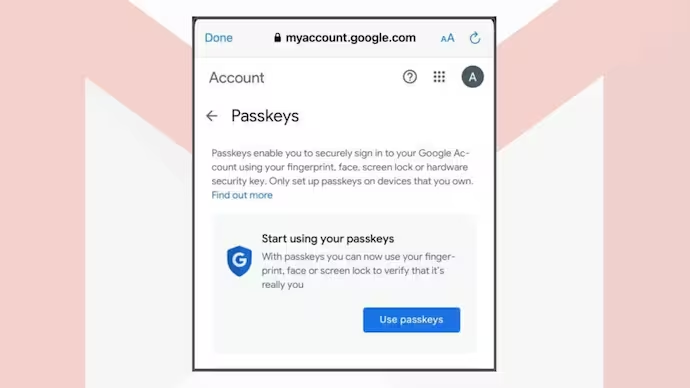In an era where cyber threats are increasingly sophisticated, securing your online accounts has never been more critical. Google has introduced passkeys as a new way to log in to Gmail, offering an alternative to traditional passwords. Passkeys promise enhanced security and a more streamlined user experience, but like any technology, they come with both benefits and drawbacks. Here’s an in-depth look at the pros and cons of setting up passkeys for your Gmail login.
What Are Passkeys?
Passkeys are a form of biometric authentication that use a device’s built-in security features, such as fingerprint sensors or facial recognition, to log you into your accounts. Instead of typing a password, you simply use your biometrics, making the process both quicker and more secure.
The Pros of Using Passkeys
Enhanced Security
- Reduced Phishing Risk: Traditional passwords are susceptible to phishing attacks, where attackers trick users into entering their credentials on fake websites. Passkeys eliminate this risk because they rely on biometric data that can’t be phished.
- No Password to Steal: Since passkeys don’t involve typing in a password, there’s no password for hackers to steal. This makes it much harder for cybercriminals to gain unauthorized access to your account.
- Multi-Factor Authentication (MFA): Passkeys can serve as a form of MFA, adding an extra layer of security. They require something you have (your device) and something you are (your biometric data), which is more secure than relying on a password alone.
Improved User Experience
- Convenience: Logging in with a passkey is faster and more convenient than remembering and typing a password. It takes just a touch or a glance to authenticate.
- Reduced Password Fatigue: Users often struggle with managing multiple passwords, leading to practices like password reuse, which can compromise security. Passkeys eliminate the need to remember complex passwords.
- Accessibility: For users with disabilities, passkeys can offer an easier way to log in compared to typing on a keyboard, especially on mobile devices.
The Cons of Using Passkeys
Technological Limitations
- Device Dependency: Passkeys require compatible devices with biometric capabilities. If your device doesn’t have a fingerprint scanner or facial recognition, you can’t use passkeys.
- Loss of Access: If you lose your device or it gets damaged, you might face challenges accessing your Gmail account. While recovery options exist, they can be cumbersome.
Privacy Concerns
- Biometric Data Storage: Storing biometric data, even locally on your device, raises privacy concerns. If your device gets hacked, there’s a risk that your biometric data could be compromised.
- Data Usage: There is a potential risk regarding how companies use your biometric data. Although companies like Google promise to protect your privacy, the collection and use of biometric data can still be a concern for some users.
Adoption and Compatibility
- Limited Adoption: Not all services and applications support passkeys yet. While you might use a passkey for Gmail, you’ll still need passwords for other accounts, making it just one part of a broader security strategy.
- Compatibility Issues: Some older devices and systems may not support passkeys, leading to inconsistent user experiences across different platforms.



